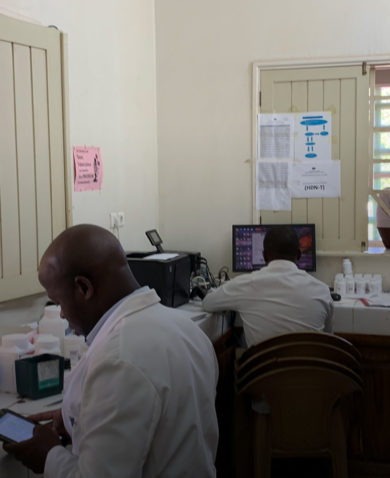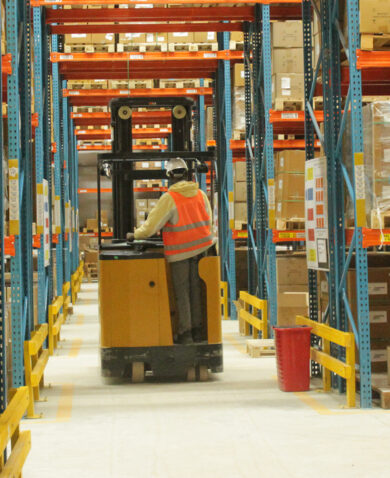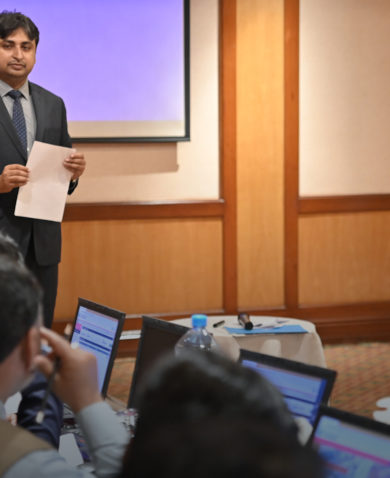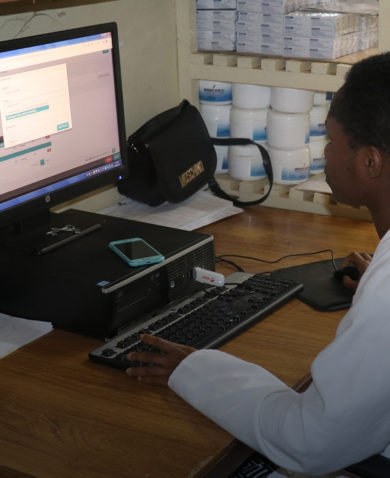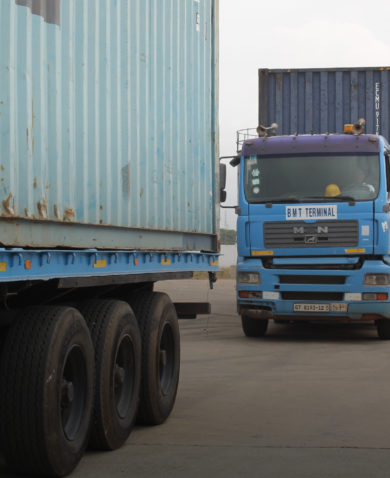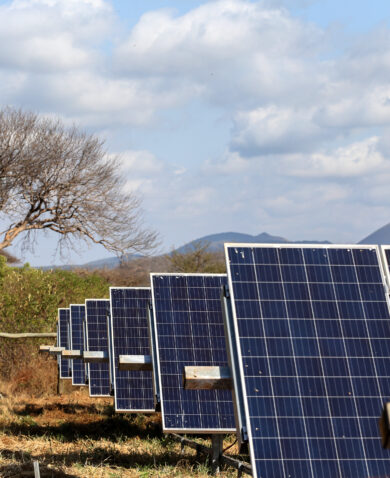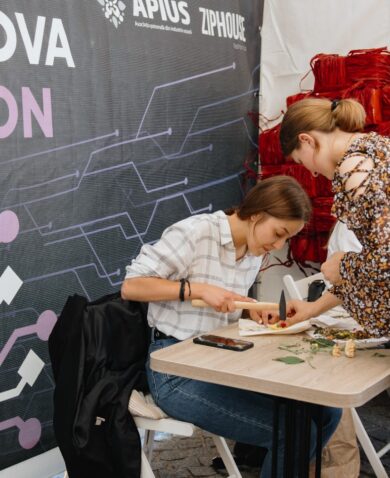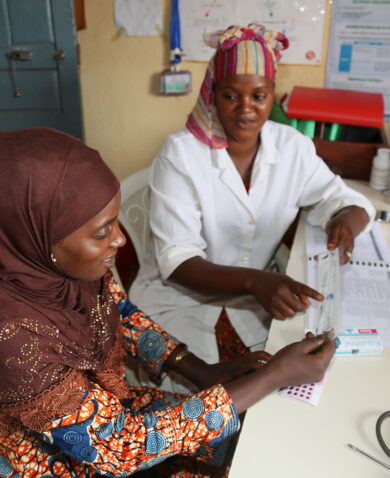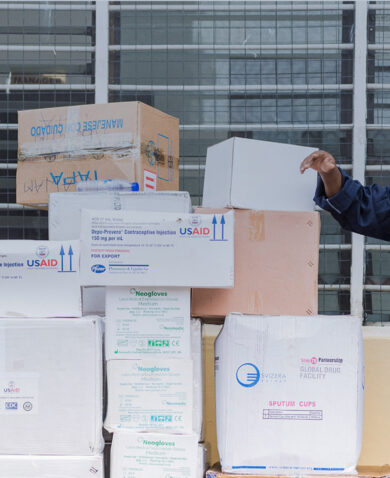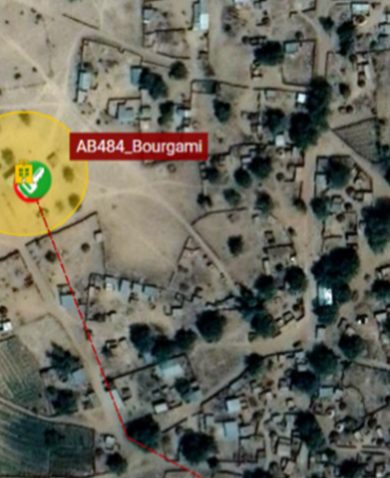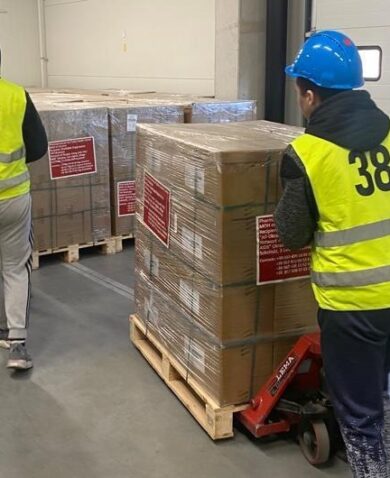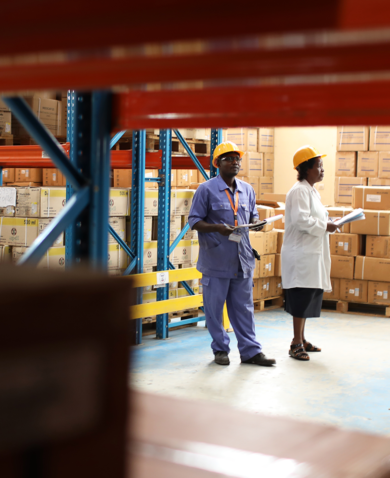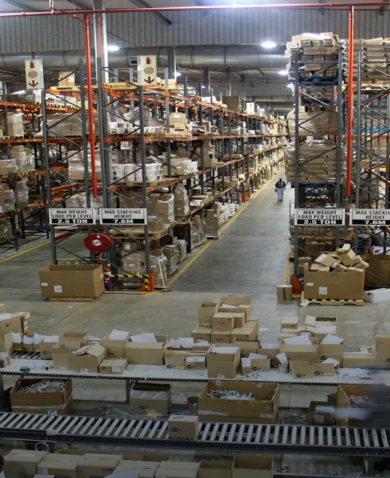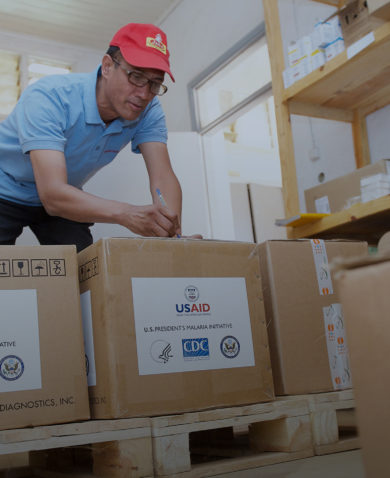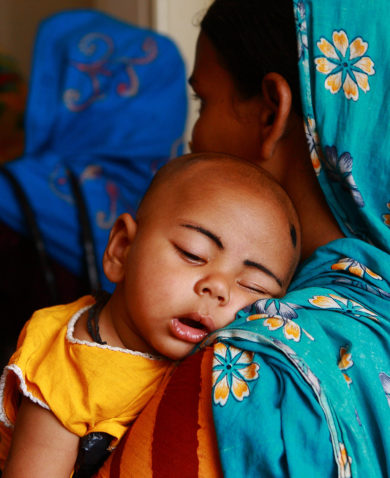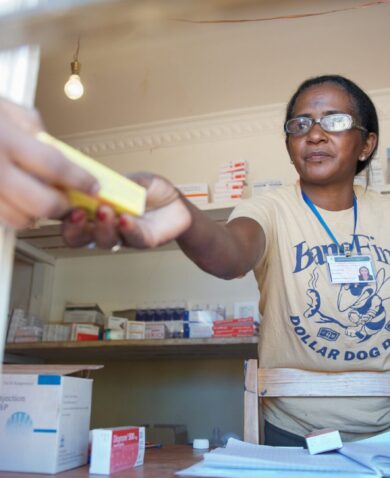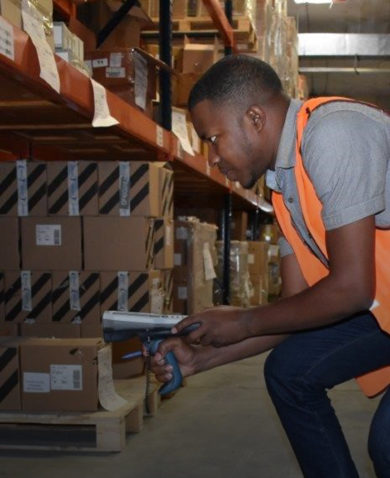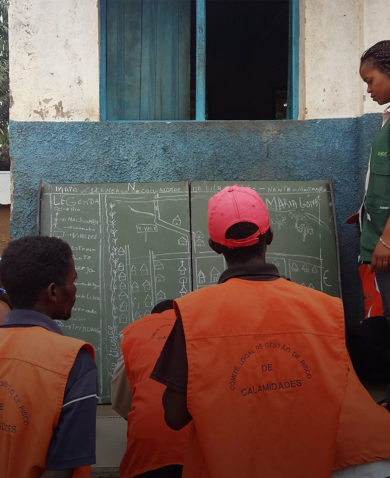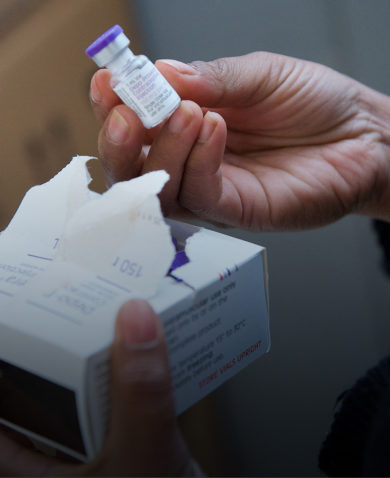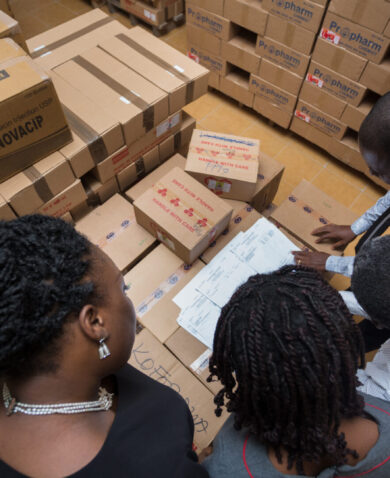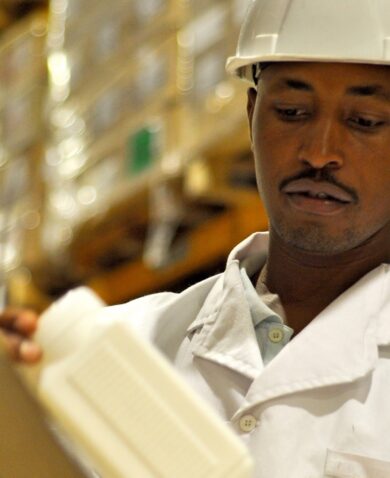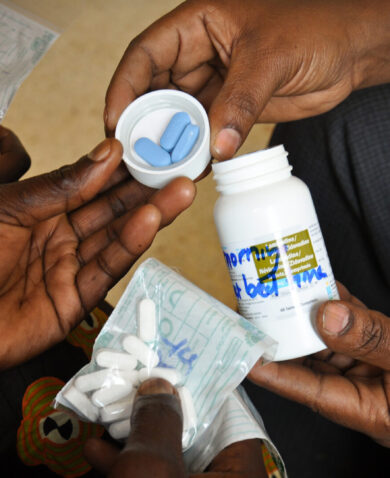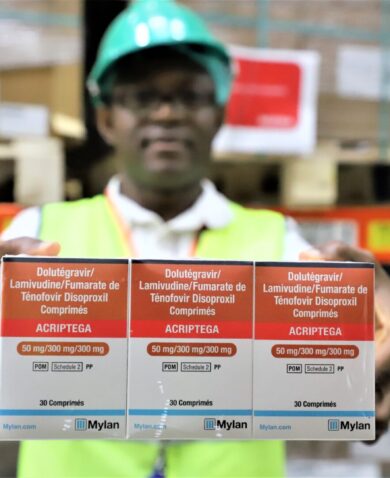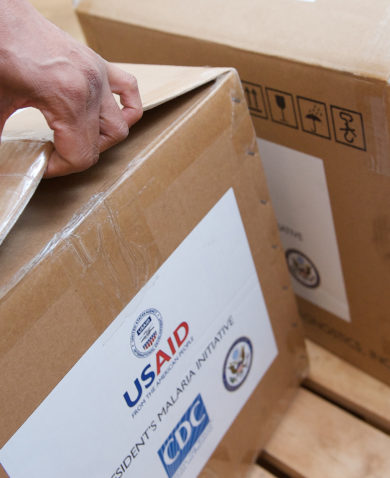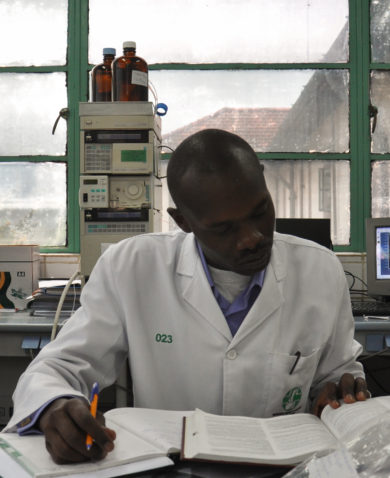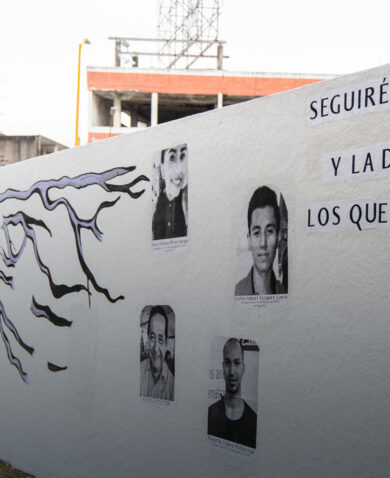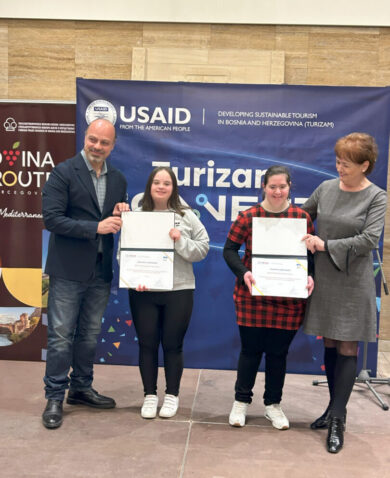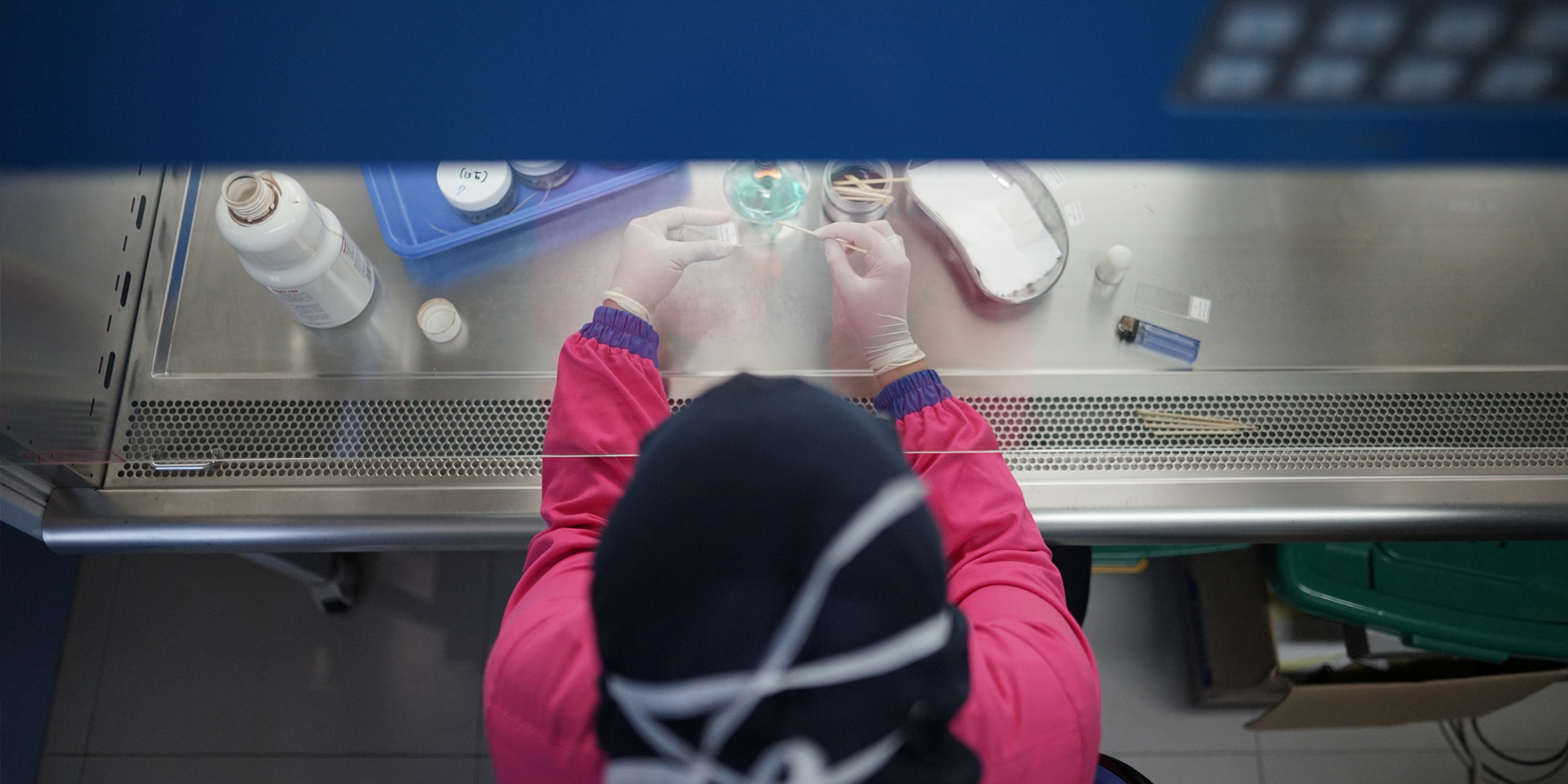
Chemonics News
News: USAID and Chemonics Selected as Government Innovation Awards Winners
September 13, 2018 | 3 Minute ReadThe Government Innovation Awards recognize disruptors and emerging leaders who are using information technology to transform government agencies. This year, USAID and Chemonics are recognized for using technology to overcome challenges in low-resource settings.
Chemonics updated this story on September 9, 2019.
The transformative power of information technology (IT) infiltrates the day-to-day lives of people around the world — from the once-remote communities who now embrace social media to the youth who were excluded from finance but are now using mobile money. Across geographical borders and technical sectors, IT is helping to drive change, and the public sector is no different.
The Government Innovation Awards, presented by 1105 Public Media Group, recognizes the movers and shakers who are using technology-driven innovations to transform government agencies. Through innovative technology on the USAID Global Health and Supply Chain Program – Procurement and Supply Management (GHSC-PSM) project, USAID and Chemonics are doing just that.
A double winner in the public sector innovations category of the 2018 Government Innovation Awards, USAID was first recognized for GHSC-PSM’s exploration of using cargo unmanned aerial vehicles (UAVs), or “drones,” to deliver lab samples and other health commodities to hard-to-reach health facilities. Although drones are regularly used for satellite imaging and capturing photographs in the commercial and humanitarian relief sectors, using cargo drones in international development and relief settings is relatively new. However, their use could greatly benefit health facilities in rural settings with limited distribution systems and weak infrastructure that create gaps in servicing patients. The project is exploring use of a hybrid drone that takes off vertically, like a helicopter, with propellers that rotate and allow it to fly like an airplane. The drones will be able to land efficiently and in small, precise spaces at health facilities. GHSC-PSM recently published this UAV procurement guide based on the project’s experience procuring UAVs to help others interested in exploring their use in public health supply chains.
USAID received a second award for GHSC-PSM’s introduction of new temperature and humidity monitoring sensors along health supply chains in Africa. As estimated annual global losses associated with temperature excursions in health care amount to billions of dollars, it is critical to monitor the temperatures of medicines continuously. Despite this, regular monitoring is costly or logistically difficult in many low-resource settings. As a result, USAID invested in durable, simple-to-use “internet of things” sensors on the GHSC-PSM project. The sensors can sense temperature, light, humidity, location, and motion, offering the ability to monitor these conditions all along the supply chain. By automatically transmitting data to the cloud, the sensors show how long a shipment has been in the danger zone and provides a wealth of actionable insights. GHSC-PSM now has nearly 300 sensors monitoring temperature and humidity in warehouses, clinics, hospital storerooms, trucks, and with community health workers in Mozambique. Similar testing is underway in Burkina Faso and Angola, with plans to expand to six more countries in October. This wealth of data gathered from the sensors informs ways to reduce the chances of temperature excursions, ensuring that lifesaving health commodities maintain their quality and effectiveness for patients.
Finally, Chemonics won an Industry Innovators Award to recognize the development of the Blockchain for Biodatas Solution. The technology is a platform that allows users to build an online profile where they create, build, and share their recognizable and vetted economic identity that can expedite administrative tasks associated with USAID’s contracting mechanisms, eliminating the need to collect, verify, and store significant quantities of personnel information needed to complete and submit a biodata form. This solution was designed to change the way the entire USAID contracting community approached this administrative task – saving both implementing partners and USAID valuable time and money. Chemonics developed the platform with BanQu, a technology company that developed the first-ever blockchain platform designed to connect the world’s poor to the global economy.
“We’re honored to receive the 2018 Government Innovation Awards and celebrate the innovative technologies deployed by USAID and GHSC-PSM. At Chemonics, we know that advancement in technologies combined with a culture of innovation can create new approaches that lead to change in even the most challenging, hard-to-reach environments. It is through efforts like those recognized by the Government Innovation Awards that we’re increasingly able to offer a flexible, responsive, and efficient supply chain to enhance lives worldwide,” says Jamey Butcher, Chemonics Executive Vice President and Acting IDIQ Director of GHSC-PSM.
Chemonics International and a consortium of partners implement the USAID GHSC-PSM project, which ensures an uninterrupted supply of public health commodities that save lives worldwide. Find out more about the project here.
Photo credit: Andi Gultom

